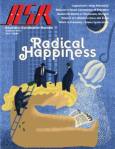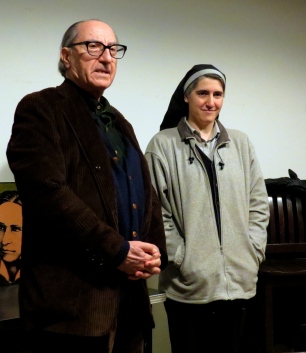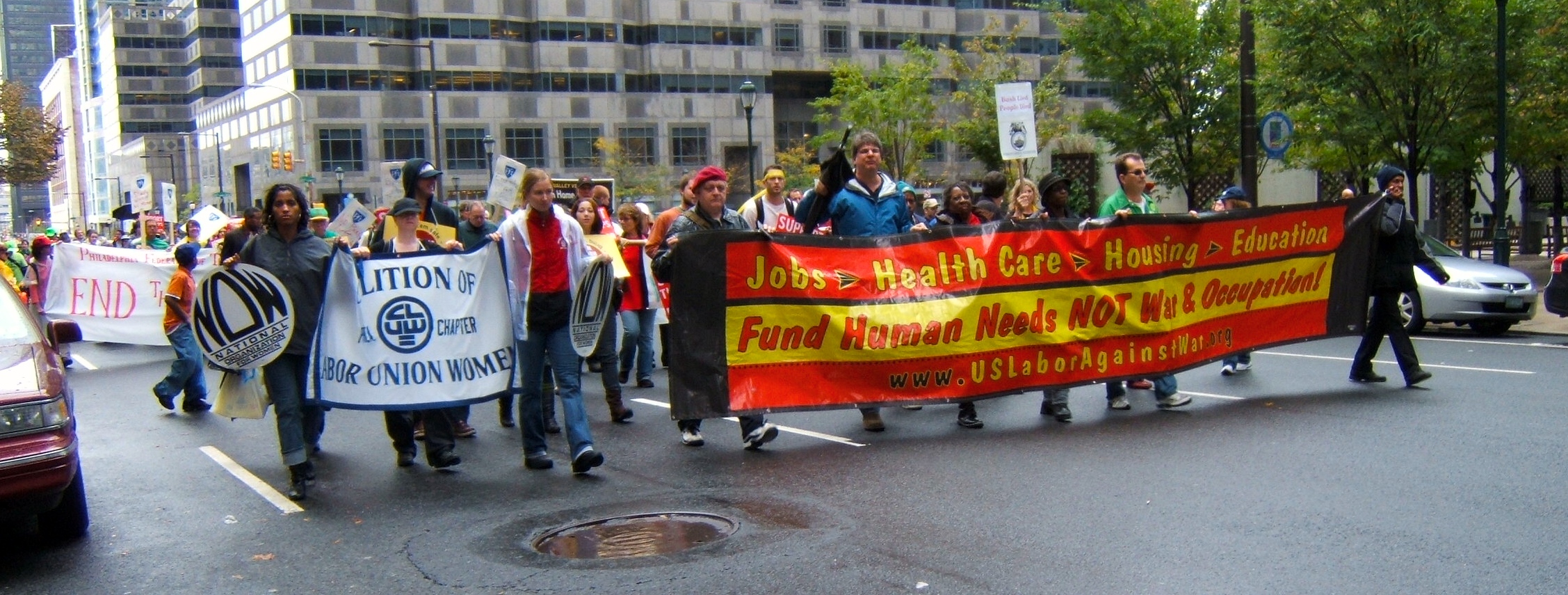Anarchist Symposium Topic, Understanding the Kurdish Women’s Movement in Syria & Why it is Important
Because of my interest in anarcho-syndicalism and my connection to Swarthmore College, a participant in the Tri-College Consortium, I could not miss the opportunity to attend this Mellon Symposium. Andrew Cornell, Mellon Postdoctoral Fellow and Visiting Assistant Professor of American Studies organized the event, which featured a group discussion on “What We Mean When We Say . . . Anarchism, Decolonization, Radical Democracy,” and then broke into three panels: Limits of Liberal Democracy, Self-determination without a State? and Putting Principals into Practice.
Event organizers moved the overflowing crowd into the auditorium. Students, professors, staff and members from the West Philadelphia anarchist community participated in the discussions:
“Slavery and the Anarchist Rejection of Democracy”
Ruth Kinna, University of Loughborough, UK
“From Anarchism to Ranciére: Radical Democracy as Active Democracy”
Todd May, Clemson University
“Nothing Common about ‘the Commons’: Settler Colonialism and Indigenous Difference”
J. Kēhaulani Kauanui, Wesleyan University
“Liberating Democracy from the Premises of the Dominant Global Order: The Rojava Revolution”
Dilar Dirik, University of Cambridge and Kurdish Women’s Movement
“‘Making power’: Another Politics, Democracy, and Radical Movements”
Chris Dixon, Anarchist social justice organizer
“Decolonizing Borders and Undoing Border Imperialism”
Harsha Walia, co-founder No One Is Illegal Network
Each discussion began with an acknowledgement that we occupy the lands that once belonged to the Lenni-Lenapi tribes that lived in eastern Pennsylvania before being driven out by the Europeans. The organizers and scholars presented compelling presentations, explaining the extent to which colonization frames the social and economic circumstances that we find in societies today.
The YPJ in Syria
I was not familiar with the current events surrounding the Kurds defense of their homelands against ISIS in Syria so I was very much interested in learning more during Dilar Dirik’s presentation. Dilar, A PhD candidate in the Sociology Department of the University of Cambridge, is an activist and advocate of the Kurdish Women’s Movement. Dilar is from Rojava territories within the borders of Syria.

Territories held by Kurdish forces, jihadists, by the Syrian Army, FSA, or contested in northern Syria, as of October 2014. Wikipedia.org
The Kurds in Syria are fighting to prevent a takeover of their homelands by the Islamic State militants or ISIS, but the YPJ in Syria is loosely associated with the PKK in Turkey, who oppose and resist Turkish rule over the northern Kurdish region. The United States maintains a policy that is favorable to Turkey, a NATO ally, and in support of Turkey, rejects the self-determination of the Kurds because Turkey does not want to lose territory to a Kurdish independent state. In addition, the PKK originally had a communist ideology.
The Kurds’ attempt to organize stateless communities in Norther Syria, called the Rojava Revolution, is often compared with the Zapatista’s experience in Chapatas, Mexico. The YPJ has made efforts to initiate democratic reforms that represent the interests of the people.The Kurds in Syria and their YPJ Star militias are making heroic efforts in a war-torn country for self-determination and receive no support from the Western powers.
According to Infoshop:
The US is now maintaining that the PYD is a separate organization from the PKK, so Washington is not breaking its own law by backing a State Department-listed “foreign terrorist organization.” In November, left-wing German lawmakers actually unfurled the PKK flag inside the parliament building to protest the EU’s listing of the group as a “terrorist organization.”
Now that the US, of necessity, is backing the PYD against ISIS, what will become of the Rojava autonomous zone? Once ISIS is defeated (insh’allah!), will the PYD ultimately be crushed in deference to Washington’s ally Turkey? It can seem that the PYD stands an almost inevitable chance of being betrayed—as both anarchists and Kurds, two groups that have historically been subject to serial betrayals.
The Term “Terrorist” Becomes Coopted
When the US labels a group as terrorist, we think of al-Qaeda and ISIS, and yet our diplomatic corps has deemed that the Kurds in Syria should also be labeled “terrorist.” The YPG considers itself a democratic people’s army and conducts elections to select their officers. What most of the West does not realize is that the women, long marginalized, have begun to organize around feminist issues. The YPJ (Women’s Protection Units) is the female brigade of the YPG. They do not however, want to perpetuate the old forms of government and power, and are seeking to establish communities that achieve equality with men.
Dilar’s answer to the question: What can we do in the United States to support the Kurds in Syria?:
Dilar’s Webpage: Post, Why Kobani did not Fall


















